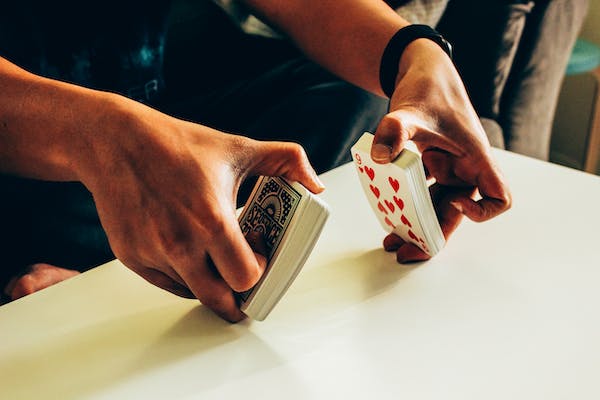Only about 1% of players in poker can make it into a full-time career, but many of the other 99% still believe they are skilled and unlucky. Some of these “unlucky” players are confident they deeply understand the game. When playing poker in person, you often hear false beliefs and myths that should be corrected. Here are a few popular ones that need debunking.
You must have many chips on your table when you want to play aggressively.
Players commonly believe that many chips are necessary to pressure opponents and that the enormous stack at the table is the “table captain.” However, this is not true. Every player gets dealt two cards, and each should play their hand to the best of their ability.
Poker differs because each hand presents a new challenge and has no predetermined game plan. You get two cards and have to make the most of them before moving on to the next hand.
Several things need to be considered while playing a hand, with stack size being one of the most crucial factors. Occasionally, playing aggressively is essential when you have a smaller stack and more conservatively with a giant pile.

You Can’t Defend the Big Blind with Under 10 Blinds
Experienced players often criticize those who defend their short stacks from the big blind. However, if you float their open with a hand like T-9o and end up hitting a pair on the flop, going all-in, and doubling up, they may reluctantly give you the chips and sarcastically say, “Well played.” Many players believe you should avoid folding an open bet, especially when your hand has fewer than a certain number of big blinds.
Using poker hands training material from 1998 is not advisable because it contains outdated information that many people still rely on. Today, most players use a smaller open-raise size compared to 1998.
If you’re in the big blind and face a min-raise open, it is enough to have about 20% raw equity to continue. It is important to note that most hands have at least 30% equity against various opening ranges. Therefore, even though you may fold many flops, your playable hands’ equity is acceptable to justify defending them.
When you have a short stack, it’s easier to use equity when you need to be in a better position. This is because you have little wiggle room for your moves. For example, you have 6 big blinds, and the cutoff player min raises. You hold T♥8♥ and defend your hand. In this situation, it’s doubtful that you’ll make a post-flop mistake because you’ll go all-in if you hit something.
To clarify, if you do not have any solid cards or potential combinations after the first three community cards are revealed (known as the flop), it is best to check initially and then fold if your opponent bets. This will help you save some of your remaining chips.
However, if you have a larger stack of 30 big blinds or more, your opponent may be more likely to bet on subsequent rounds of the game, making it harder for you to stay in the game and make a winning hand. On the other hand, if you have fewer chips left in your stack, it can be easier to strategize and make the most of the cards you have after the flop.

When You Play, You Play to Win With Every Hand You Play
Some players use the phrase “Bingo!” after losing all their chips early in a poker tournament due to reckless play. They claim they had to play aggressively to win, but this strategy often results in early elimination. It’s important to remember that winning a tournament on the first day is impossible.
Your goal should be to play solid and strategic poker online or live and adjust according to your opponents. Playing hyper-aggressively doesn’t necessarily mean you have to play for the win. Playing to win is often unrealistic, but sometimes it’s also the right strategy to move forward.
When there is a chance of winning, it’s better to focus on winning rather than just playing. In some cases, like during the final two tables of the WSOP Main Event, it might be reasonable to take significant risks.
Sometimes, you may have to confront the chip leader to avoid being blinded. However, these high-stakes situations demand cautiousness, as there’s a thin line between taking calculated risks and making kamikaze moves.
It’s important to note that aiming for 2nd or 3rd place in tournaments with significant prize money is okay. Tournament players must accept and take advantage of pay-jumping opportunities like they cherish rare victories. Winning everything is impossible, and your success, in the long run, depends on how you handle the big picture.
“Every Poker Tournament should be played the same” is inaccurate because different tournament structures, such as satellite games, freezeouts, knockouts, and deep stacks, require different strategies.
It is essential to consider the conditions specific to each game, such as the number of entrants, buy-in fee, prize pool, payout places, and the opponents you are playing against. For example, depending on the payout places, your strategy may need to be adjusted during the bubble.

Conclusion
Poker tournaments can be a fun, safe, and entertaining way to play the game if you enter it with realistic expectations. Remember that the unpredictability of poker game tournaments makes them exciting, and the thrill of winning first place is worth the risks involved.
Preparing for a tournament is essential to knowing your bankroll, having a good strategy, and familiarizing yourself with the tournament rules. Do research before signing up for any tournament, and go in well-prepared. That way, you’ll be sure to enjoy playing your best game!

